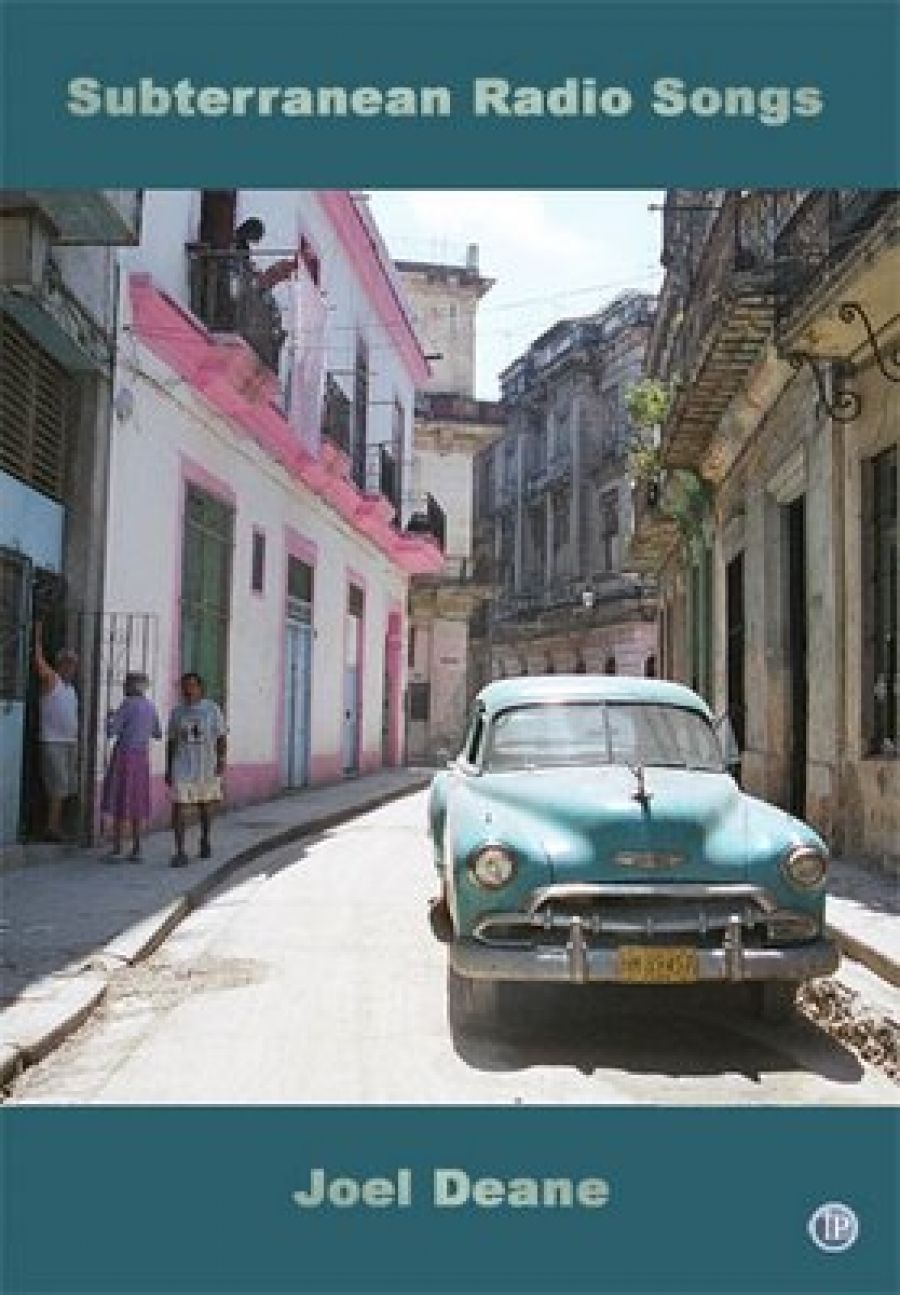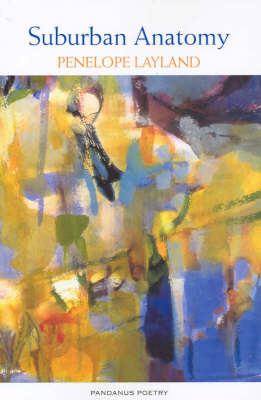
- Free Article: No
- Contents Category: Poetry
- Review Article: Yes
- Article Title: At home and on the road
- Online Only: No
- Custom Highlight Text:
Good writing can take many forms, and I have often wished for a greater mutual appreciation, between poets and journalists, of the fine things with words that both are able to do. Joel Deane and Penelope Layland, former journalists, bring well-honed skills to their first volumes. (Deane is currently the speechwriter for the premier of Victoria, Steve Bracks.) In their work we find much clarity and a strong facility for description. Take, for example, Layland’s ‘Muttonbird Island’: ‘In the dark soil chicks incubate / camouflaged by a silence / they instinctively keep.’ Deane, meanwhile, is flexing his descriptive muscles in ‘Freckle’, a poem about childhood and memories of a long-drowned man: ‘… how, last summer, / when the river bed fell, / they found tissue paper, / once the muscle of a man, / stretched over sunken branches.’
- Book 1 Title: Subterranean Radio Songs
- Book 1 Biblio: Interactive Press, $23 pb, 80 pp
- Book 1 Cover Small (400 x 600):

- Book 1 Cover (800 x 1200):

- Book 2 Title: Suburban Anatomy
- Book 2 Biblio: Pandanus, $19.80 pb, 50 pp
- Book 2 Cover Small (400 x 600):

- Book 2 Cover (800 x 1200):

Both poets have an eye for the telling detail, enlivened by a wry, insouciant attitude to life. Deane has many travel poems, and this is typical: ‘[I] … wade into the night. / The courtyard is quiet. / I kick my legs over the crater of a peanut-shaped pool. / Sit, evaporating in the humidity. / Watch the naked bulb inside number four on the second floor / simmer its sealed room to the boil.’ (‘Summer Storm, Las Vegas’)
Both poets have a respect for accurate and colourful observation, plus a certain distance and objectivity, often ironic. Here is Deane: ‘Come Glasgow / we let the Volkswagen turn into an igloo of German engineering …’ (‘Glasgow’)
Layland, in ‘Urban Archaeology’, commands a similar mode: ‘When the builders tear the kitchen / out by the roots / they uncover the proof of other lives. / Skin grafts of old lino // … a scab of wallpaper, stuck fast / and the leavings of long-dead joiners / who pushed new-sawn cabinets / in upon sawdust and sandwich scraps … // …an accretion of animal hair. A nest. // … a faded pencilled number / and a single word: Jeanette.’
Both poets like to put things in wider contexts, and have a similar worldliness and urbanity. This quality enlivens Layland’s ‘January Ritual’, one of several poems that employs a concluding, journalistic-style ‘capper’, which pulls the lines together in a satisfyingly crisp way. Both poets are also alert to what constitutes a ‘story’, including its colour and drama. For both, events are related through the first-person singular – an authorial ‘I’, usually presented in a natural and straightforward way.
The exception is Deane’s excellent ‘Dogma 95’, which toys with the ‘problem’ of authenticity. In this poem, two lovers on a beach act out roles, as if in separate movies. The ‘problem’ is this: we only have culturally determined strategies for any representation of self, all of them ‘second-degree’, and hence falsifying. I like Deane’s strong grasp of the so-called ‘dilemma’, and his nerve in sending it all up as bad faith and absurd intellectual cowardice, cutting through to the lovers’ genuine feelings.
Deane’s book is an autobiography in two parts, with the first section (‘South’) taking us breezily through his childhood, to his first marriage and tragic loss of a child, then a traumatic break-up. ‘South’ concludes with the brilliantly energetic ‘Under Westgate’. In this virtuosic ‘poem in motion’, the hard, jerky, foot-down rhythms and kinaesthetic imagery convey a visceral experience of driving under the site of the famous bridge disaster, while everything spins emotionally out of control.
The second half of Subterranean Radio Songs, titled ‘North’, sees Deane off to Las Vegas and numerous casinos (no wonder he works for Bracks), then precariously zipping down the dis-orienting left-hand drive lanes of spaghetti-junction US. In these escapades, Deane is on the road in the wake of the Beats, sipping tequila and speed highballs, hanging out with prostitutes and digging the sleazy romance of it all. Deane returns home briefly, then is suddenly all over the map again, heading down to Miami and beyond. The book ends with him getting all the hurt, dirt and angst out of his system, going home and vowing to be more himself, rather than an overdetermined reflector of Americana, whether in earnest or ersatz.
Deane is not beyond fanging his narrative along with speedy – though lightweight and easily consumed – page-turners. His ‘I discover America’ efforts are often ‘boy meets Jack Kerouac’. All the same, there are some nice novelistic touches, and I enjoyed the ride.
In Suburban Anatomy, the threads of Layland’s ‘story’, in contrast, are largely thematic. Constant is her care for intimacy, which must be continuously refreshed, to avoid staleness. Layland always seems to be ironing out the small ironies of everyday life; a life that risks unravelling into decay, ill health and death.
Many of her poems wear their (absolutely genuine) sincerity on their sleeve, in what Kris Hemensley once termed the ‘Honest Joe’ style. Most have a domestic focus, which grounds them in real experience, though some are undercut by banality and truisms, to trite and slight effect. Still, Layland is at home on her range, and her poems, at their best, are deft, surgical and penetrating. There may be few grand pyrotechnics, but more than the odd sparkler. And Layland has the last word, in ‘Hearing Jim Jones’, on the darker side of speech-writing: ‘… your voice brays from a cheap cassette, / a cautionary lesson in mass communication … // shrill with love and warning. / Your rhythms lull and persuade … // My dry lips crave imagined poison.”


Comments powered by CComment